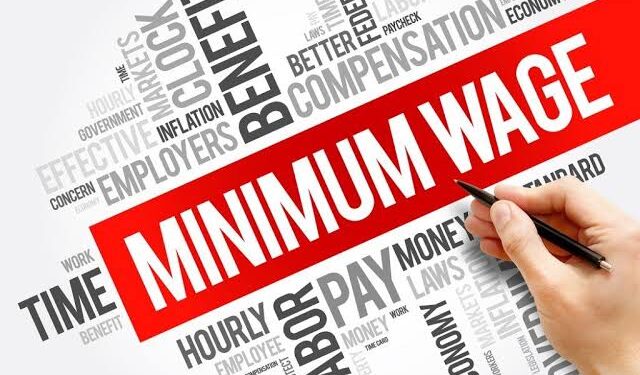
Nigeria’s economy has faced significant challenges in recent years, with the devaluation of the Naira and soaring inflation rates eroding the purchasing power of workers across the country. In response to these economic realities, leading economists and labor advocates have put forward a compelling case for raising the national minimum wage to 166,000 Naira per month.
The current minimum wage of 30,000 Naira per month, set in 2019, was equivalent to approximately $83.3 at the time, based on an exchange rate of 360.0594 Naira to the US dollar. However, with the Naira plummeting to 1,487 to $1 as of today, the real value of the 2019 minimum wage has drastically shrunk to only around 123,867 Naira.
Moreover, Nigeria’s inflation rate reached a staggering 33.69% in April 2024. Factoring in this high rate of inflation, experts have calculated that the minimum wage should be recalibrated to 165,610.3 Naira to maintain the purchasing power of workers and account for the depreciation of the Naira.
The failure of the Nigerian government to adjust the minimum wage in line with these economic realities has perpetuated financial hardship for many Nigerians. Recognizing the urgent need to address this issue, the Federal Government and Organized Labour have recently come to a resolution to set the national minimum wage above 60,000 Naira.
However, experts and advocates argue that this figure is still insufficient to meet the basic needs of workers and their families. Setting the minimum wage at 166,000 Naira per month is not only a fair measure but a necessary step towards alleviating the burden of poverty and inequality faced by workers in the country.
Raising the minimum wage to 166,000 Naira would have a significant positive impact on the lives of millions of Nigerians. It would ensure that workers can afford essential goods and services, improve their overall standard of living, and contribute to the country’s economic growth and development.
Moreover, this adjustment would demonstrate the government’s commitment to prioritizing the welfare of its citizens and promoting social justice. By enacting this long-overdue change, Nigeria can take a crucial step towards building a more equitable and prosperous future for all.











